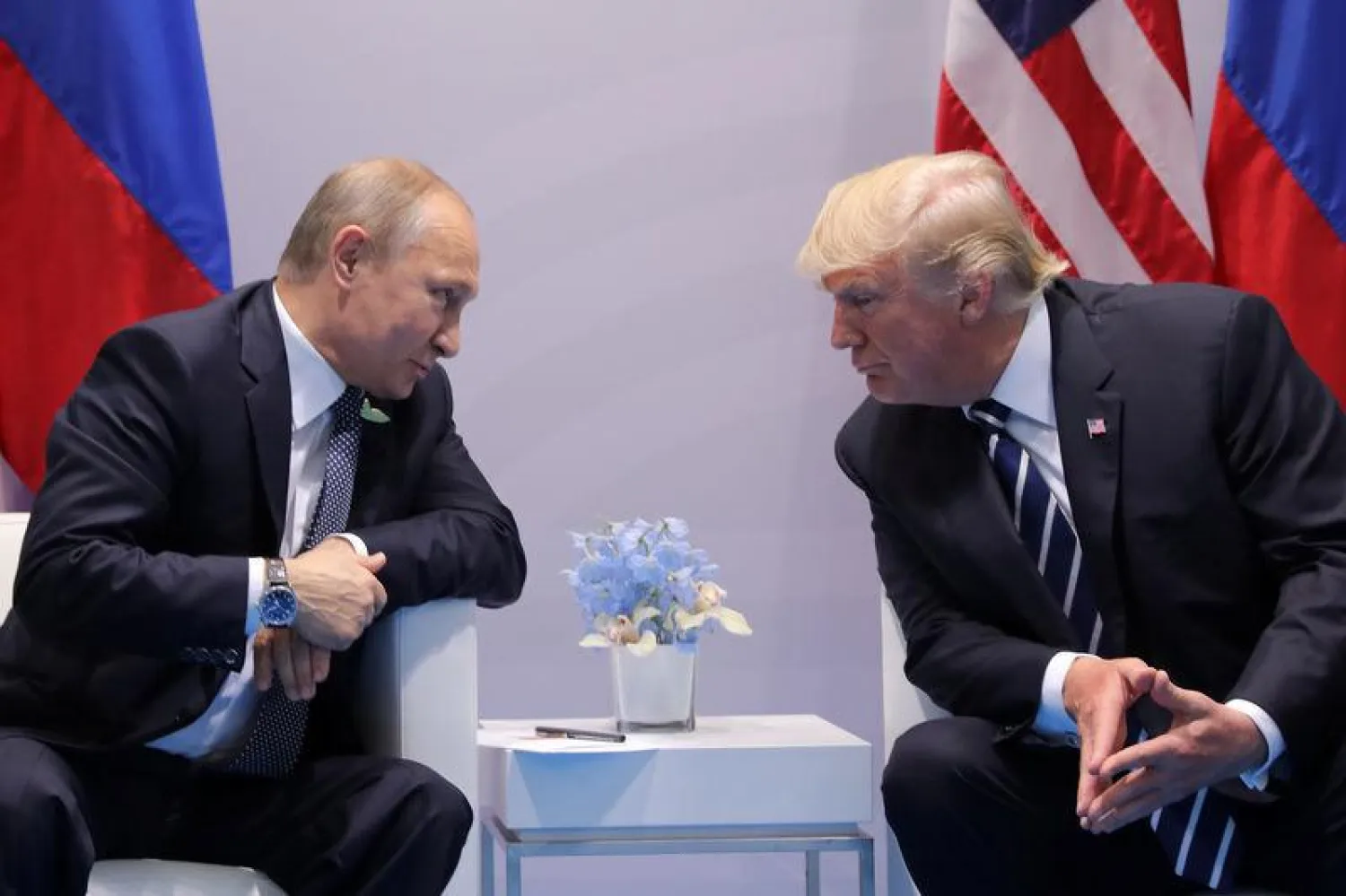With Russia’s blessing, US will extend the US forces’ presence in east Syria after ISIS has been defeated. In return, it will facilitate the Russian political solution announced days before.
The joint statement announced in Washington and Moscow between US President Donald Trump and Russian President Vladimir Putin following their meeting on the margins of the Asia-Pacific Economic Cooperation (APEC) in Da Nang, Vietnam, showed US flexibility and joint understanding on a new reference for the solution of Syrian crisis is within constitutional reforms and not a new constitution.
According to Western officials, there are right remarks on the Trump-Putin joint statement which included:
First: De-confliction and dividing powers: Putin and Trump agreed to maintain open military channels of communication between military professionals to help ensure the safety of both US and Russian forces and de-confliction of partnered forces engaged in the fight against ISIS.
Both leaders confirmed these efforts will be continued until ISIS is defeated.
The agreement, coordinated between a center in Amman and Hmaymeem base, succeeded in preventing any collusion between the two armies and air forces during the battles east of Syria. It also ensured the control of Arab-Kurdish Syrian Democratic Forces on Raqqa and east of Euphrates River, and regime forces and their allies in Der Ezzor and west of Euphrates.
However, Washington is worried about the destiny of its forces in Syria after ISIS is defeated, something the Moscow is beginning to consider an illegal presence.
This could be considered a Russian –US political admittance of division of power: east of Euphrates for US’ allies, west of Euphrates for Russia’s allies. Noticeably, the statement affirmed the leaders’ commitment to Syria’s sovereignty, unity, independence, territorial integrity, and non-sectarian character, as defined in UNSCR 2254.
Two: No Military Solution:
The statement stated that there is no military solution to the conflict in Syria, and both presidents confirmed that the “ultimate political solution to the conflict must be forged through the Geneva process pursuant to UNSCR 2254.”
This affirms Trump administration’s decision to end CIA’s secret program to train opposition factions in Jordan and Turkey which ends this year. This comes as a part of the US’ plan to drop its plan to “change the regime”, which was reported previously by the former US Secretary of State John Kerry during his meetings with Russian officials.
The US succeeded, according to reports, in adding the statement that ensures the Geneva process and Resolution 2253.
Thirdly, the statement didn’t mention the Syrian National Dialogue that was expected to be held in Sochi, Russia this month. It did however, state that the solution will be in the final stage of Geneva Convention according to Resolution 2254.
Fourth, the statement “also took note of President Assad’s recent commitment to the Geneva process and constitutional reform and elections as called for under UNSCR 2254.”
Based on information, US insisted on adding Geneva process and UNSR 2254 to the Russian draft of the statement.
“The two Presidents affirmed that these steps must include full implementation of UNSCR 2254, including constitutional reform and free and fair elections under UN supervision, held to the highest international standards of transparency, with all Syrians, including members of the diaspora, eligible to participate,” added the statement.
US Secretary of State Rex Tillerson said following his talks with UN Special Envoy for Syria Staffan de Mistura, President Bashar al-Assad and his family have no role in the future of Syria.
“It is our view and I have said this many times as well that we do not believe that there is a future for the Assad regime and Assad family. The reign of the Assad family is coming to an end. The only issue is how that should that be brought about,” Tillerson told reporters.
Five, Political Transition: the statement didn’t refer to political transition or 2012 Geneva statement, but it didn’t include two things: the clause on forming a non-sectarian system, and establishing a new constitution.
Six: Syrian Diaspora: the statement only referred to right of “all Syrians, including members of the diaspora, eligible to participate” in the elections.
“During the 2015 Vienna process, Russia suggested that Syrian refugees could participate in the elections under the UN supervision,” said a diplomat. However, Moscow succeeded in convincing Washington in accepting the suggestions.
Seven: US interest in Iran’s militias and Hezbollah: “President Trump and President Putin confirmed the importance of de-escalation areas as an interim step to reduce violence in Syria, enforce ceasefire agreements, facilitate unhindered humanitarian access, and set the conditions for the ultimate political solution to the conflict,” read the statement.
The two presidents reviewed the progress on the ceasefire in southwest Syria that was finalized the last time the two Presidents met in Hamburg, Germany on July 8, and welcomed the Memorandum of Principles concluded in Amman, Jordan, on November 8.
The memorandum reinforces the success of the ceasefire initiative, to include: “reduction and ultimate elimination of foreign forces and foreign fighters from the area to ensure a more sustainable peace.”
The statement is referring here to the Nujaba Movement and Hezbollah between Damscus, Jordanian border, and Golan Heights.
Finally, the statement unveiled Washington’s bet on Russia’s attempt to reduce Iran’s influence in Syria and withdrawal of its forces from south of the Country.
Some Western officials welcomed the joint statement considering it a political agreement between two countries to support the political process in Geneva, while others doubted its necessity saying that the upcoming negotiations will not discuss political transition but rather focus on: how to amend the constitution? Will the elections be parliamentary or presidential? Will the elections be done soon or in 2021? Will Assad participate? What is the role of the international monitoring? Who are Syrians in diaspora who will participate in the elections?









